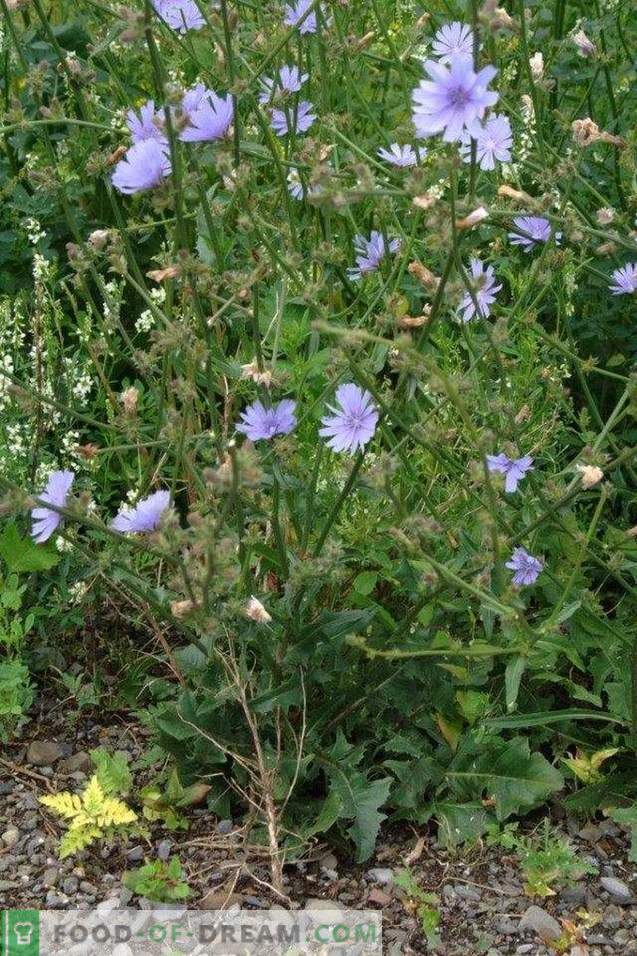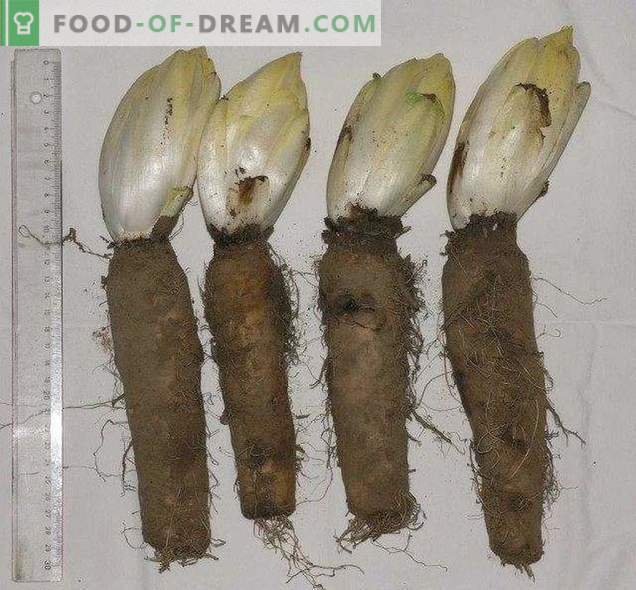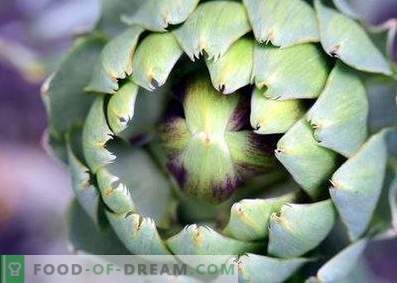We have an unpretentious plant - chicory. It lives along roads, on forest glades, on meadows, along village streets, and an uninvited guest appears right on the crops. Light blue flowers of chicory at the ends of the branches are collected in baskets, and they turn blue from July until late autumn.
Common chicory (Cichorium intybus) is a species of perennial herbaceous plants from the genus Chicory (Cichorium) of the Astrove family (Asteraceae). Chicory is common as a weed plant. It is recognizable by its inflorescences-baskets, which consist of reed blue flowers. These baskets are opened in the early morning hours and in cloudy weather. Folk names: roadside grass, blue flower, Petrov Bathoi, Shcherbak.

Many, of course, have heard of it, they know that chicory is used as flavor and aromatic additives to various food products: coffee and coffee drinks, confectionery. Here, perhaps, that's all. Meanwhile, chicory is not just useful, but truly a miraculous plant, and people knew about it in ancient times. The Egyptians and the Romans used chicory as a salad plant, as well as an integral part of the preparation of many medicinal mixtures. In Russia, chicory has been cultivated since 1800, it began in the Rostov district of the Yaroslavl province. And now in Rostov-Yaroslavsky is located the country's largest coffee-tsikorny plant.
Useful properties of chicory
What is chicory useful for man? Yes, many! Drugs from it have antimicrobial, anti-inflammatory, sedative, astringent, diuretic, choleretic and appetite stimulating action. They enhance cardiac activity, reduce sweating, and have a beneficial effect on metabolism.
In inflammatory diseases of the mucous membrane of the stomach, small and large intestines, liver, kidneys, gall bladder, as well as cholelithiasis and kidney stones, chicory decoction helps. And it reduces nervous excitability, good as a general tonic.

Application of chicory
Here's how to cook a decoction of chicory: 2 tbsp. l a mixture of crushed roots and the above-ground parts of the plant, taken equally, is poured with a glass of hot water, boiled for half an hour, cooled, filtered. Take 1/3 cup three times a day before meals.
And if you prepare a stronger decoction (4 tbsp. L. Per cup of boiling water), you get a very effective remedy for the treatment of skin rashes, acne, boils, purulent wounds and eczema. If children have diathesis, a decoction of chicory is used for baths, as well as in the form of lotions and rubbing. These procedures are repeated 2-3 times a day, and the bath is desirable to do at night. The addition of chicory to coffee reduces the heartbeat resulting from caffeine exposure.
Chicory is recommended for diabetics, because chicory inulin, turning into fructose, facilitates the work of the liver and quickly removes toxins from the body.

Scientists have found that the presence of bitter elements - intibine, taste and aromatic agents in chicory - affects the secretion of gastric juices, which stimulates the stomach, prevents constipation, prevents the occurrence of dysentery.
Chicory stimulates the nervous system, and since it does not contain narcotic substances, it does so without harming it. It eliminates insomnia and promotes good mood in the morning.
You can also add that chicory has a refreshing, antipyretic effect on the human body.























